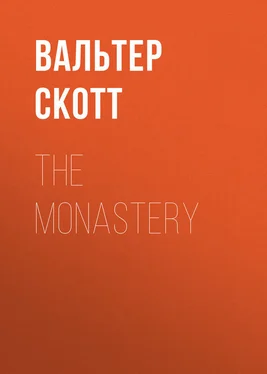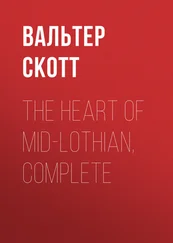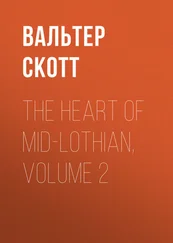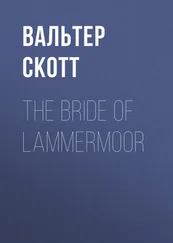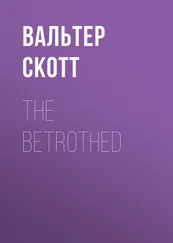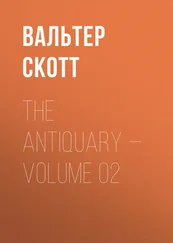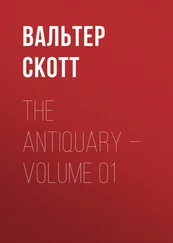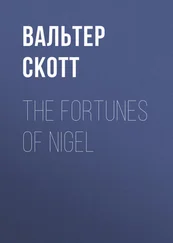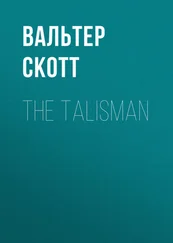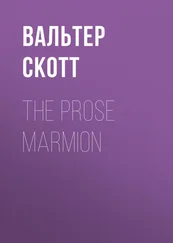Вальтер Скотт - The Monastery
Здесь есть возможность читать онлайн «Вальтер Скотт - The Monastery» — ознакомительный отрывок электронной книги совершенно бесплатно, а после прочтения отрывка купить полную версию. В некоторых случаях можно слушать аудио, скачать через торрент в формате fb2 и присутствует краткое содержание. Жанр: foreign_antique, foreign_prose, Альтернативная история, на английском языке. Описание произведения, (предисловие) а так же отзывы посетителей доступны на портале библиотеки ЛибКат.
- Название:The Monastery
- Автор:
- Жанр:
- Год:неизвестен
- ISBN:нет данных
- Рейтинг книги:4 / 5. Голосов: 1
-
Избранное:Добавить в избранное
- Отзывы:
-
Ваша оценка:
- 80
- 1
- 2
- 3
- 4
- 5
The Monastery: краткое содержание, описание и аннотация
Предлагаем к чтению аннотацию, описание, краткое содержание или предисловие (зависит от того, что написал сам автор книги «The Monastery»). Если вы не нашли необходимую информацию о книге — напишите в комментариях, мы постараемся отыскать её.
The Monastery — читать онлайн ознакомительный отрывок
Ниже представлен текст книги, разбитый по страницам. Система сохранения места последней прочитанной страницы, позволяет с удобством читать онлайн бесплатно книгу «The Monastery», без необходимости каждый раз заново искать на чём Вы остановились. Поставьте закладку, и сможете в любой момент перейти на страницу, на которой закончили чтение.
Интервал:
Закладка:
To express himself by signs, the common language of all nations, the cautious Sacristan first pointed to the river, then to his mule’s crupper, and then made, as gracefully as he could, a sign to induce the fair solitary to mount behind him. She seemed to understand his meaning, for she rose up as if to accept his offer; and while the good monk, who, as we have hinted, was no great cavalier, laboured, with the pressure of the right leg and the use of the left rein, to place his mule with her side to the bank in such a position that the lady might mount with ease, she rose from the ground with rather portentous activity, and at one bound sate behind the monk upon the animal, much the firmer rider of the two. The mule by no means seemed to approve of this double burden; she bounded, bolted, and would soon have thrown Father Philip over her head, had not the maiden with a firm hand detained him in the saddle.
At last the restive brute changed her humour; and, from refusing to budge off the spot, suddenly stretched her nose homeward, and dashed into the ford as fast as she could scamper. A new terror now invaded the monk’s mind – the ford seemed unusually deep, the water eddied off in strong ripple from the counter of the mule, and began to rise upon her side. Philip lost his presence of mind, – which was at no time his most ready attribute, the mule yielded to the weight of the current, and as the rider was not attentive to keep her head turned up the river, she drifted downward, lost the ford and her footing at once, and began to swim with her head down the stream. And what was sufficiently strange, at the same moment, notwithstanding the extreme peril, the damsel began to sing, thereby increasing, if anything could increase, the bodily fear of the worthy Sacristan.
I.
Merrily swim we, the moon shines bright,
Both current and ripple are dancing in light.
We have roused the night raven, I heard him croak,
As we plashed along beneath the oak
That flings its broad branches so far and so wide,
Their shadows are dancing in midst of the tide.
“Who wakens my nestlings,” the raven he said,
“My beak shall ere morn in his blood be red.
For a blue swoln corpse is a dainty meal.
And I’ll have my share with the pike and the eel.”
II.
Merrily swim we, the moon shines bright,
There’s a golden gleam on the distant height;
There’s a silver shower on the alders dank.
And the drooping willows that wave on the bank.
I see the abbey, both turret and tower,
It is all astir for the vesper hour;
The monks for the chapel are leaving each cell.
But Where’s Father Philip, should toll the bell?
III.
Merrily swim we, the moon shines bright,
Downward we drift through shadow and light,
Under yon rock the eddies sleep,
Calm and silent, dark and deep.
The Kelpy has risen from the fathomless pool.
He has lighted his candle of death and of dool.
Look, Father, look, and you’ll laugh to see
How he gapes and glares with his eyes on thee.
IV.
Good luck to your fishing, whom watch ye to-night?
A man of mean, or a man of might?
Is it layman or priest that must float in your cove,
Or lover who crosses to visit his love?
Hark! heard ye the Kelpy reply, as we pass’d, —
“God’s blessing on the warder, he lock’d the bridge fast!
All that come to my cove are sunk,
Priest or layman, lover or monk.”
How long the damsel might have continued to sing, or where the terrified monk’s journey might have ended, is uncertain. As she sung the last stanza, they arrived at, or rather in, a broad tranquil sheet of water, caused by a strong wear or damhead, running across the river, which dashed in a broad cataract over the barrier. The mule, whether from choice, or influenced by the suction of the current, made towards the cut intended to supply the convent mills, and entered it half swimming half wading, and pitching the unlucky monk to and fro in the saddle at a fearful rate.
As his person flew hither and thither, his garment became loose, and in an effort to retain it, his hand lighted on the volume of the Lady of Avenel which was in his bosom. No sooner had he grasped it, than his companion pitched him out of the saddle into the stream, where, still keeping her hand on his collar, she gave him two or three good souses in the watery fluid, so as to ensure that every other part of him had its share of wetting, and then quitted her hold when he was so near the side that by a slight effort (of a great one he was incapable) he might scramble on shore. This accordingly he accomplished, and turning his eyes to see what had become of his extraordinary companion, she was nowhere to be seen; but still he heard, as if from the surface of the river, and mixing with the noise of the water breaking over the damhead, a fragment of her wild song, which seemed to run thus: —
Landed – landed! the black book hath won.
Else had you seen Berwick with morning sun!
Sain ye, and save ye, and blithe mot ye be,
For seldom they land that go swimming with me.
The ecstasy of the monk’s terror could be endured no longer; his head grew dizzy, and, after staggering a few steps onward and running himself against a wall, he sunk down in a state of insensibility.
Chapter the Sixth
Now let us sit in conclave. That these weeds
Be rooted from the vineyard of the church.
That these foul tares be severed from the wheat,
We are, I trust, agreed. – Yet how to do this,
Nor hurt the wholesome crop and tender vine-plants,
Craves good advisement.
The vesper service in the Monastery Church of Saint Mary’s was now over. The Abbot had disrobed himself of his magnificent vestures of ceremony, and resumed his ordinary habit, which was a black gown, worn over a white cassock, with a narrow scapulary; a decent and venerable dress, which was calculated to set off to advantage the portly mien of Abbot Boniface.
In quiet times no one could have filled the state of a mitred Abbot, for such was his dignity, more respectably than this worthy prelate. He had, no doubt, many of those habits of self-indulgence which men are apt to acquire who live for themselves alone. He was vain, moreover; and when boldly confronted, had sometimes shown symptoms of timidity, not very consistent with the high claims which he preferred as an eminent member of the church, or with the punctual deference which he exacted from his religious brethren, and all who were placed under his command. But he was hospitable, charitable, and by no means of himself disposed to proceed with severity against any one. In short, he would in other times have slumbered out his term of preferment with as much credit as any other “purple Abbot,” who lived easily, but at the same time decorously – slept soundly, and did not disquiet himself with dreams.
But the wide alarm spread through the whole Church of Rome by the progress of the reformed doctrines, sorely disturbed the repose of Abbot Boniface, and opened to him a wide field of duties and cares which he had never so much as dreamed of. There were opinions to be combated and refuted – practices to be inquired into – heretics to be detected and punished – the fallen off to be reclaimed – the wavering to be confirmed – scandal to be removed from the clergy, and the vigour of discipline to be re-established. Post upon post arrived at the Monastery of Saint Mary’s – horses reeking, and riders exhausted – this from the Privy Council, that from the Primate of Scotland, and this other again from the Queen Mother, exhorting, approving, condemning, requesting advice upon this subject, and requiring information upon that.
These missives Abbot Boniface received with an important air of helplessness, or a helpless air of importance, – whichever the reader may please to term it, evincing at once gratified vanity, and profound trouble of mind. The sharp-witted Primate of Saint Andrews had foreseen the deficiencies of the Abbot of St. Mary’s, and endeavoured to provide for them by getting admitted into his Monastery as Sub-Prior a brother Cistercian, a man of parts and knowledge, devoted to the service of the Catholic Church, and very capable not only to advise the Abbot on occasions of difficulty, but to make him sensible of his duty in case he should, from good-nature or timidity, be disposed to shrink from it.
Читать дальшеИнтервал:
Закладка:
Похожие книги на «The Monastery»
Представляем Вашему вниманию похожие книги на «The Monastery» списком для выбора. Мы отобрали схожую по названию и смыслу литературу в надежде предоставить читателям больше вариантов отыскать новые, интересные, ещё непрочитанные произведения.
Обсуждение, отзывы о книге «The Monastery» и просто собственные мнения читателей. Оставьте ваши комментарии, напишите, что Вы думаете о произведении, его смысле или главных героях. Укажите что конкретно понравилось, а что нет, и почему Вы так считаете.
